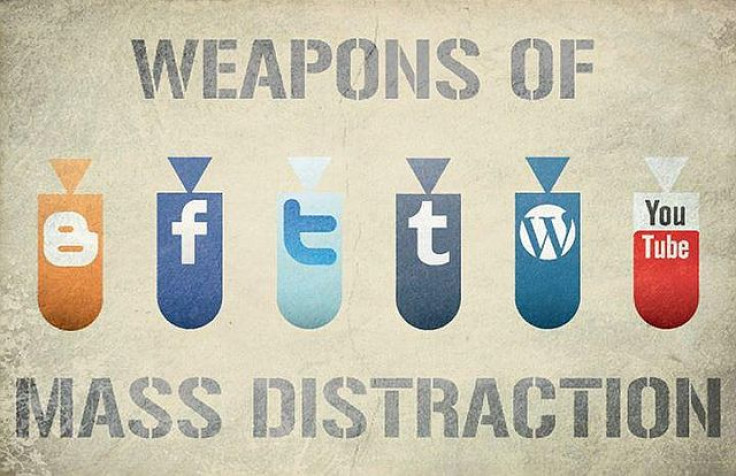Distractions At Work: How A Simple Chat With A Colleague Can Disrupt The Workplace And Workers Themselves

Getting distracted at work can be as small as looking out the window or as big as a lengthy conversation with a coworker. But according to workplace solutions company Steelcase, these distractions — along with technology and heavy workloads — are affecting both the workplace and the mindset of workers themselves.
Steelcase conducted a survey of nearly 10,000 employees of various companies throughout 17 countries. Almost half of all respondents, most of whom worked in office environments, said they were easily distracted at work, with constant emails being the main cause. In addition to responding to emails, they also said advances in technology, like smartphones and social media, as well as the pressure to juggle many tasks at once, distracted them.
Steelcase argues workers are more easily distracted because they are "drowning in information, [but are] also expected to process it faster, getting to insights, recommendations, decisions, or at least next steps rapidly.” As much as we’d like to be efficient at our jobs, our brains simply aren’t meant to handle the constant need to focus on so many tasks.
“Employers are always on the lookout for the brightest people available. However, the difficulty to withstand multiple tasks and distractions in the office affects smart people in the same way as everyone else, if not more,” Bostjan Ljubic, vice president of Steelcase, told The Telegraph.
The average office worker, the survey found, is distracted or interrupted from their work every three minutes. Getting back on track and fully focused on the task can then take more than 23 minutes , according to research by Gloria Mark, a professor in the Department of Informatics at the University of California, Irvine. Our smartphones are another major cause of distractions, Steelcase says, pointing to the fact there’s been a 200 percent increase in the average time people spend on their mobile devices over the last three years.
The consequences of these distractions can be wide-ranging. Research has shown that multitasking makes it difficult to focus on any single task; people who believe they can manage several tasks at once end up performing less effectively than if they were to concentrate on one. (Think writing an important email, checking Twitter, talking to a coworker, and singing along to your favorite song in your head, all at the same time.) Not only does multitasking at work cause people to be less productive, but it can also cause a range of health issues. Researchers have found that constant distractions at work can up a person’s risk of anxiety, forgetfulness, and even a drop in IQ.
In the workplace, these effects translate into overall losses in productivity, and more. A month-long survey by CareerBuilder found 42 percent of 2,175 hiring and human resources managers agreed quality of work took the biggest hit from distractions. Twenty-five percent also believed distractions had a negative impact on the boss-employee relationship, and 21 percent believed distractions caused a lack of revenue for the company.
According to Steelcase, more companies need to explore mindfulness with their employees. The company asserts having meditation or yoga rooms can help employees refocus, and possibly even help them be less easily distracted. It also suggests policies that enable employees to have a work-life balance, including a ban on using email after work hours. This process, it says, will help people rein in their wandering minds and focus.



























